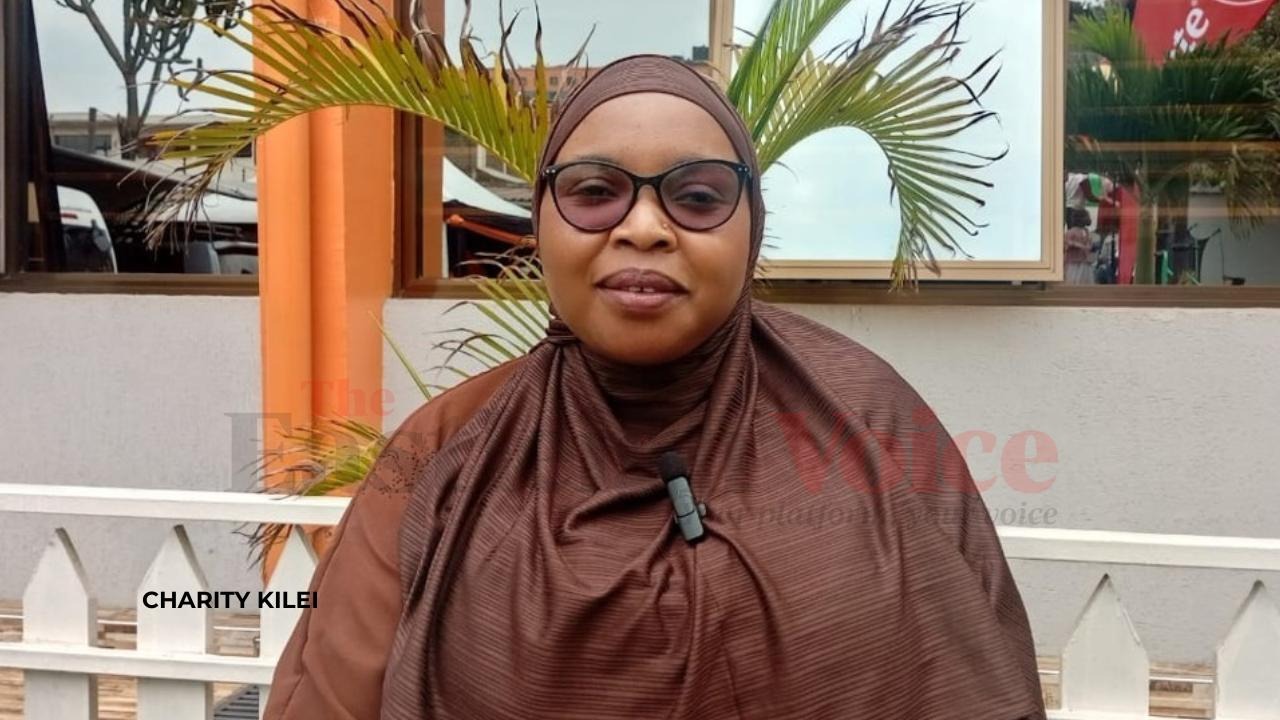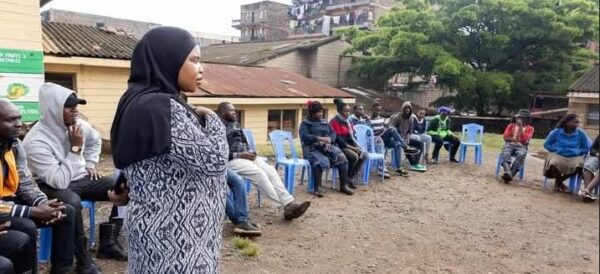When birth brings heartbreak: Mothers share their stories of children with deformities

Many mothers in Kenya face isolation, stigma, and emotional trauma after giving birth to children with deformities, highlighting gaps in maternal mental health support.
During antenatal care, many mothers receive little to no psychological preparation for potential complications or birth deformities. The focus is often on physical health, with almost no attention given to emotional well-being or guidance on coping if something unexpected happens. As a result, countless women end up battling deep depression, anxiety, and low self-esteem after childbirth.
This was precisely what Halima Osman experienced when she gave birth to her baby with a cleft deformity. She recalls being the only mother in the labour ward facing such a situation — feeling lost, confused, and completely alone.
More To Read
- Severe nausea, vomiting in pregnancy linked to major physical and mental health risks
- Gen Z redefines freedom as Kenya marks 62 years of independence
- Violence is a normal part of life for many young children: Study traces the mental health impacts
- Explainer: As mental health challenges rise, here is what you need to know about antidepressants
- Mental health advocates call for community-based support as economic strain deepens
- How to talk to your kids about mental health
There was no counsellor to talk to, no reassurance, and no one who seemed to understand her pain. What should have been a moment of joy turned into one of isolation and emotional distress, leaving Halima feeling invisible.
After undergoing a caesarean section, Halima waited anxiously in the recovery room to meet her newborn son. When baby Amir was finally brought to her, the nurse gently explained that the baby had a problem — his facial structure had not fully formed in the mouth area. She was encouraged to breastfeed him, but Amir couldn't latch. For over an hour, Halima tried, growing increasingly anxious and exhausted.
"I felt helpless," she recalls softly. "He couldn't feed, and I didn't know what was wrong. That moment broke me." The baby's constant cries, combined with his fragile appearance, left her deeply shaken. Each cry pierced through her, heightening her sense of fear and helplessness.
 Halima Osman during an awareness campaign on mental health and GBV. (Photo: Handout)
Halima Osman during an awareness campaign on mental health and GBV. (Photo: Handout)
Soon after, the medical staff took Amir back to the nursery, and Halima remained in the hospital for a week. During that time, there was no psychologist or mental health professional available — just her, alone with her baby's condition, surrounded by other mothers who were coming and going with healthy newborns. Although she began taking supplements to recover physically, she received no emotional or psychological support.
"Every time I looked at my son, I felt pain. I thought God was punishing me."
In her community, and within both sides of her family, no one had ever been born with such a condition. Halima was the first to face this experience, and the realisation intensified her pain. "I felt my self-esteem completely crushed," she recalls, "stigmatised and emotionally drained."
The people around her — particularly her father — often said "Alhamdulillah" (thank God) when they saw her, but she could not find comfort in those words. "I felt like God was punishing me," she says.
Community scrutiny
Her husband tried to be supportive, but even he struggled to navigate the situation under the weight of cultural expectations and community scrutiny. The lack of awareness and support systems left both parents emotionally strained.
Amid her pain, Halima began to reflect deeply. She realised that if she — an educated woman living in an urban area — felt so lost and unsupported, the situation must be far worse for women in rural or low-income areas who lacked access to information, healthcare, or emotional support.
That thought marked a turning point. Halima decided to transform her trauma into advocacy. She began speaking out about the hidden struggles of mothers raising children with deformities and disabilities, connecting them to services — women often silenced by stigma, shame, and misinformation.
Smile Reborn Initiative
In time, her efforts evolved into a structured movement: the Smile Reborn Initiative. Through this organisation, Halima set out to create awareness, provide psychological support to mothers, and promote acceptance for children born with physical differences.
Halima emphasises that the problem begins at the very foundation of maternal healthcare.
"In most clinics, mothers are taught about feeding, hygiene, and general baby care," she explains. "But no one prepares you for the possibility of giving birth to a child with a deformity or disability. No one teaches mothers how to handle it emotionally."
Maternal education gap
This gap in maternal education, she says, leaves women unprepared and vulnerable. When faced with such a situation, many families respond with fear and rejection.
"The first thing that happens is that the mother hides the baby," Halima says. "There are so many myths in our communities — people believe deformities are curses, or that the mother did something wrong. The psychological toll on women is devastating."
Through Smile Reborn, Halima and her team conduct awareness campaigns, counselling sessions, and community dialogues that challenge stigma and promote inclusion.
They provide safe spaces for mothers to share their stories and receive emotional support. The organisation also works to educate men and families about their critical role in offering love and acceptance.
Halima's advocacy extends beyond awareness — she calls for a cultural shift.
"When a man discovers that his wife has given birth to a child with a deformity, it can be traumatic," she admits. "But instead of walking away or blaming the mother, husbands need to stand by their wives. Disability is not a curse. It is not a punishment."
Heartbreaking cases
She recounts heartbreaking cases where mothers have been physically abused or abandoned after giving birth to children with disabilities.
"We've seen women beaten, rejected, and left alone to raise their children," she says. "This has to stop. We must hold hands and tell the world that every child — no matter how they are born — deserves love and acceptance."
Today, Halima continues to use her voice and experience to empower others. What began as a deeply personal struggle has grown into a movement of hope, compassion, and resilience.
Through Smile Reborn, she has reached dozens of families, helping mothers access mental health services and encouraging communities to embrace children with deformities.
From healing to transformation
Her story serves as a reminder that healing can lead to transformation and that one woman's courage can ignite change for many others.
Sarah Maina, a nurse who has worked with mothers from different communities across several counties, has witnessed firsthand the emotional shock many women experience when they are told that their newborn has a disability or deformity.
She explains that such news often leaves mothers devastated, withdrawn, and at risk of depression. However, with so many patients to attend to, it became difficult for the staff to spend adequate time with each mother.
"Many mothers shut down when they hear such news. You can see the pain and confusion in their eyes. Some cry silently, others refuse to hold their babies. It's heartbreaking."
Comfort and reassurance
She notes they do their best to offer comfort and reassurance, but the overwhelming number of patients and lack of resources make it difficult to provide personalised care.
"We try to encourage them as much as we can," she says, "but sometimes it's not enough. We are also not fully equipped to provide the psychological support these mothers need."
She adds that in most local clinics and dispensaries, psychological support services are not readily available.
"We often have to refer such cases elsewhere," she explains, "but many times the mothers are too weak, too emotionally disturbed, or simply unable to afford the cost of specialised care. The financial burden becomes another barrier to healing."
According to Sarah, in many rural areas, women rely heavily on family support — but when a child is born with a deformity or disability, that support system can collapse.
"Sadly, some family members reject both the mother and the child," she says. "Instead of receiving comfort and help, the mother is blamed or abandoned. This leaves both her and the baby vulnerable and isolated."
Emotional experiences
A qualitative study titled "Experiences and Barriers to Accessing Mental Health Support in Mothers of Children with a Disability" explored the emotional experiences of women raising children with disabilities and the challenges they face in seeking psychological help.
The research revealed that most mothers experience an initial wave of shock and grief when they are told about their child's condition.
Many described the feeling as one of loss, confusion, or disbelief — as if they were mourning the life they had imagined for their child.
This emotional reaction was intensified by cultural and religious stigma surrounding disability, which often portrays such conditions as a curse or misfortune.
The study found that barriers to accessing mental health support exist at three levels: personal, professional, and systemic.
Stigma and guilt
On a personal level, many mothers internalised stigma and guilt, believing that asking for help would make them appear weak or ungrateful.
Some did not even recognise that what they were experiencing — deep sadness, hopelessness, and detachment — were symptoms of depression or trauma. Their focus remained entirely on the child's medical needs, leaving no room to care for their own emotional health.
At the professional level, health workers tended to focus solely on the child's physical condition and treatment plan, rarely addressing the mother's psychological well-being.
Many mothers in the study said that when they tried to express their distress, their feelings were ignored or dismissed. Several recalled feeling invisible in hospital settings, as if their emotions did not matter.
Limited training
The study noted that this neglect was often not out of malice, but rather due to health professionals' limited training in psychological care and the overwhelming number of patients they manage each day.
Systemic barriers compounded the problem. Mental health services were either unavailable, too expensive, or difficult to access.
Referral systems were weak, and where services did exist, they were almost entirely child-centred, leaving mothers with nowhere to turn for emotional healing.
In low-resource settings, mental health is often viewed as secondary to physical care, and as a result, mothers are left to navigate their pain alone.
The consequences of this lack of support were profound. Many mothers suffered prolonged depression and anxiety, which affected their ability to bond with and care for their children.
Some became socially withdrawn, while others reported marital conflict or rejection by their families. Only a few eventually sought therapy — often years later, and only after their symptoms became unbearable.
Top Stories Today













































